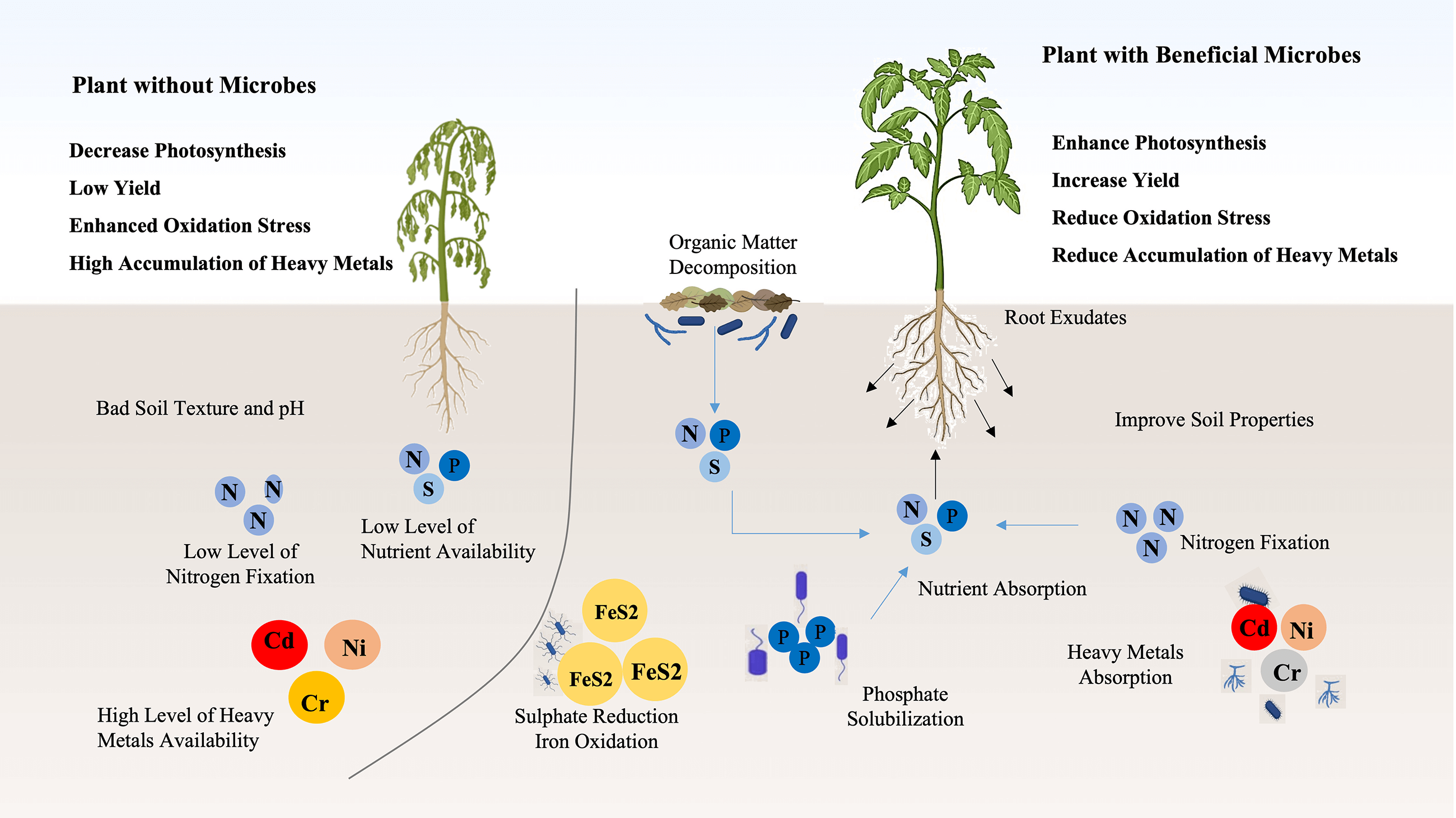 Open Access
Open Access
REVIEW
Microbial Strategies for Enhancing Nickel Nanoparticle Detoxification in Plants to Mitigate Heavy Metal Stress
Sanya Institute of Nanjing Agriculture University, Jiangsu Collaborative Innovation Center for Modern Crop Production, Key Laboratory of Crop Physiology Ecology and Production Management, Nanjing Agricultural University, Nanjing, 211800, China
* Corresponding Author: Ganghua Li. Email:
(This article belongs to the Special Issue: Metabolic Mechanisms of Plant Responses to Stress)
Phyton-International Journal of Experimental Botany 2025, 94(5), 1367-1399. https://doi.org/10.32604/phyton.2025.064632
Received 20 February 2025; Accepted 21 April 2025; Issue published 29 May 2025
Abstract
Soil naturally contains various heavy metals, however, their concentrations have reached toxic levels due to excessive agrochemical use and industrial activities. Heavy metals are persistent and non-biodegradable, causing environmental disruption and posing significant health hazards. Microbial-mediated remediation is a promising strategy to prevent heavy metal leaching and mobilization, facilitating their extraction and detoxification. Nickel (Ni), being a prevalent heavy metal pollutant, requires specific attention in remediation efforts. Plants have evolved defense mechanisms to cope with environmental stresses, including heavy metal toxicity, but such stress significantly reduces crop productivity. Beneficial microorganisms play a crucial role in enhancing plant yield and mitigating abiotic stress. The impact of heavy metal abiotic stress on plants’ growth and productivity requires thorough investigation. Bioremediation using Nickel nanoparticles (Ni NPs) offers an effective approach to mitigating environmental pollution. Microorganisms contribute to nanoparticle bioremediation by immobilizing metals or inducing the synthesis of remediating microbial enzymes. Understanding the interactions between microorganisms, contaminants, and nanoparticles (NPs) is essential for advancing bioremediation strategies. This review focuses on the role of Bacillus subtilis in the bioremediation of nickel nanoparticles to mitigate environmental pollution and associated health risks. Furthermore, sustainable approaches are necessary to minimize metal contamination in seeds. The current review discusses bacterial inoculation in enhancing heavy metal tolerance, plant signal transduction pathways, and the transition from molecular to genomic research in metal stress adaptation. Moreover, the inoculation of advantageous bacteria is crucial for preserving plants under severe mental stress. Different researchers develop a complex, vibrant relationship with plants through a series of events known as plant-microbe interactions. It increases metal stress resistance through the creation of phytohormones. In general, the defensive responses of plants to heavy metal stress, mediated by microbial inoculation require further in-depth research. Further studies should explore the detoxification mechanism of nickel through bioremediation to develop more effective and sustainable remediation strategies.Graphic Abstract

Keywords
Cite This Article
 Copyright © 2025 The Author(s). Published by Tech Science Press.
Copyright © 2025 The Author(s). Published by Tech Science Press.This work is licensed under a Creative Commons Attribution 4.0 International License , which permits unrestricted use, distribution, and reproduction in any medium, provided the original work is properly cited.


 Submit a Paper
Submit a Paper Propose a Special lssue
Propose a Special lssue View Full Text
View Full Text Download PDF
Download PDF Downloads
Downloads
 Citation Tools
Citation Tools